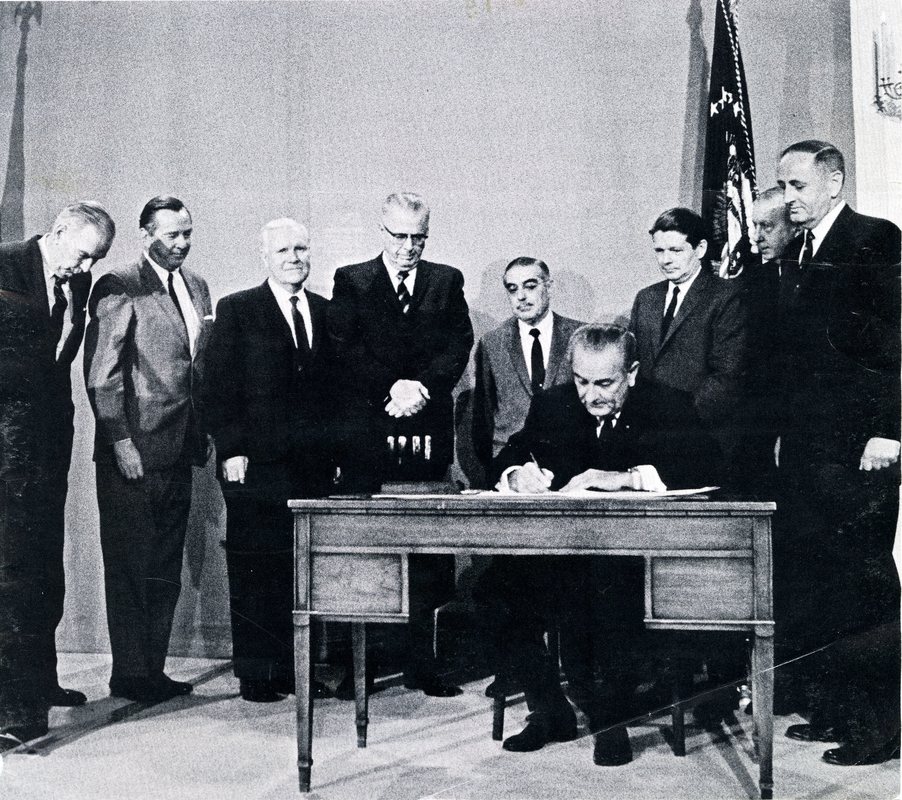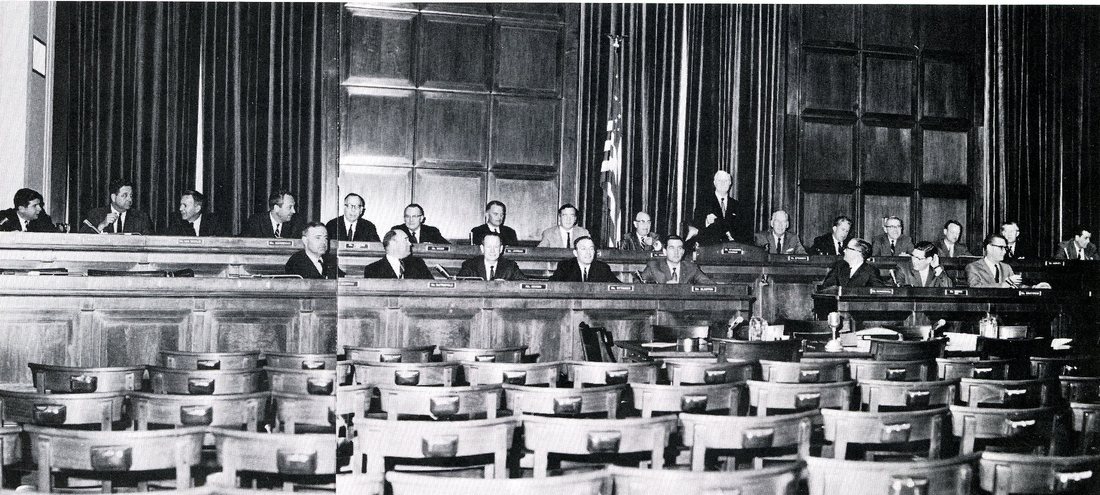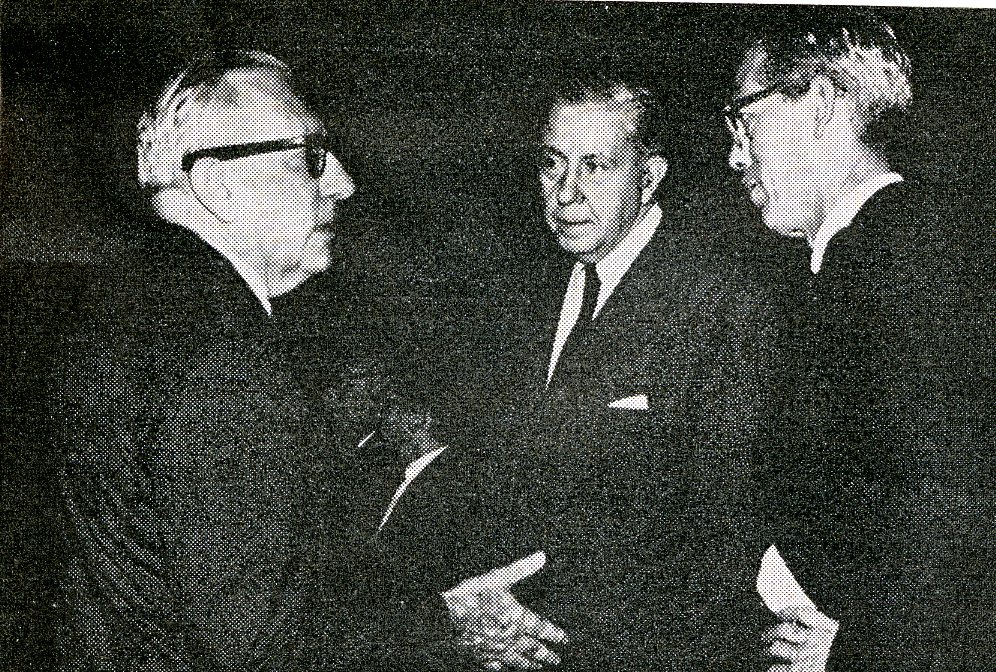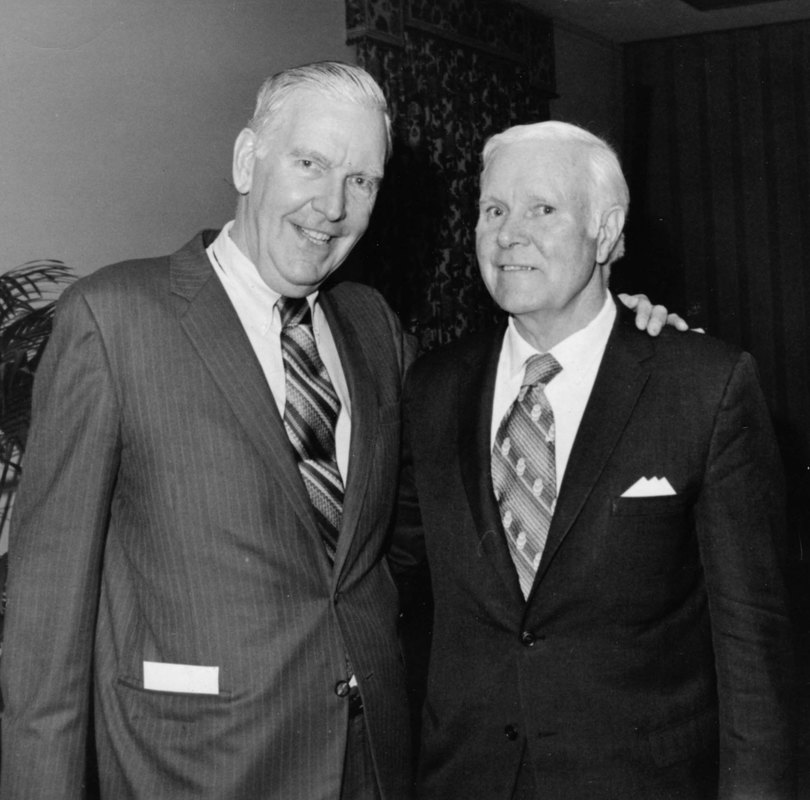|
Fifty years ago, Congress passed the Public Broadcasting Act of 1967, establishing the Corporation for Public Broadcasting. The bill came as a result of a study conducted by the Carnegie Corporation of New York which urged the creation of public broadcasting to combat the growing influence of commercial broadcasters on America’s airwaves. At the urging of President Johnson, the Senate took up the motion in late spring and quickly moved it through the Senate Commerce Committee, sending it to the House in May of 1967. However, it was in the House of Representatives that the bill became embattled in protracted and contentious hearings. When the bill arrived in the House, the Committee on Interstate and Foreign Commerce was busy working with the Johnson Administration to determine a solution to a major railroad strike that halted passenger and freight services in the summer of 1967. The hearing for the Public Broadcasting Act was delayed until a solution on the rail strike was met. Committee Chairman Harley O. Staggers scheduled the first hearing on the bill in late July. Opponents to the bill strengthened their efforts to halt the measure from gaining House passage during this period. The first week of hearings in the House Commerce Committee were rife with charged testimonies regarding vague provisions in the Senate bill, the costs associated with the proposed Corporation for Public Broadcasting, and the possibility of the public-funded news organization being used as a propaganda tool.
Committee members’ concerns were exacerbated by the consideration of several other pieces of legislation concerning the nation’s airwaves. These included the dominance of network television companies over local and nonprofit broadcasters, the question of whether broadcasters could charge for their content (Pay TV), and the effect of professional sports blackouts on the freedom of the airwaves. In an effort to appease opponents of the bill, Congressman Staggers urged the committee to more precisely define its funding provisions in order to allow for the establishment of the new corporation before further review. Many of the amendments applied by the House Committee addressed these fiscal concerns. As a result, the House version of the bill established funding levels for three fiscal years and made the Corporation for Public Broadcasting subject to reauthorization in the future. The bill also mandated a maximum percentage of federal appropriations to each state that could be applied to building the infrastructure to produce and broadcast educational programing through the Corporation for Public Broadcasting.
President Lyndon Johnson signed the Public Broadcasting Act into law on November 7, 1967, declaring that “it will give a wider and, I think, stronger voice to educational radio and television by providing new funds for broadcast facilities. It will launch a major study of television's use in the Nation's classrooms and its potential use throughout the world. Finally — and most important — it builds a new institution: the Corporation for Public Broadcasting."  President Lyndon Johnson signs the Public Broadcasting Act on November 7, 1967. Congressmen Staggers (third from left), Springer (fourth from left), and Senator John Pastore (fifth from left) are among those standing behind President Johnson. Senator Pastore and Congressman Staggers headed to conference committee which reconciled the House and Senate versions of the legislation. Comments are closed.
|
Welcome to the Byrd Center Blog! We share content here including research from our archival collections, articles from our director, and information on upcoming events.
Categories
All
Archives
July 2023
|
Our Mission: |
The Byrd Center advances representative democracy by promoting a better understanding of the United States Congress and the Constitution through programs and research that engage citizens.
|
Copyright © Robert C. Byrd Center for Congressional History and Education
|




 RSS Feed
RSS Feed
